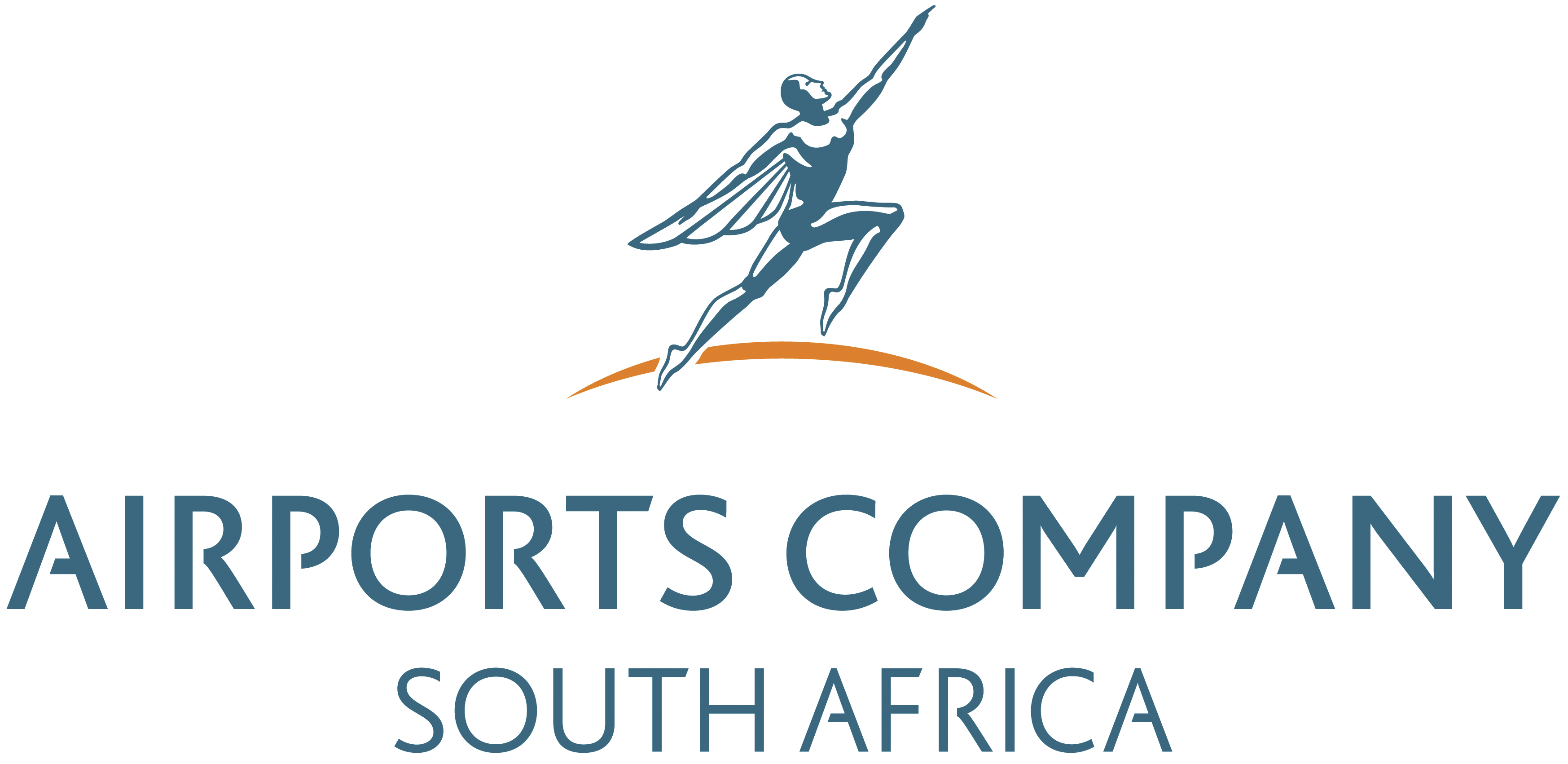Performance report
Key performance indicator information for the period FY2022/23
Our business 
| Strategic objectives and KPIs | KPI definition | KPI formula | Metric | Annual Target | FY2022/23 Actual |
Target Achieved |
|
|---|---|---|---|---|---|---|---|
| Financial Sustainability | OPEX Allocation | Maximum Company level total operating expenditure allocation inclusive of both employee costs and operating expenses. | Total Company employee costs plus total Company operating expenses for the year. | R million | R3 390m | R3 482m | ● |
| CAPEX Allocation | Maximum total capital expenditure allocated within the Company budget. | Total Company capital expenditure for the year. | R million | R798m | R422m | ● | |
| Diversify the business portfolio | Aeronautical Revenue | Revenue derived from aeronautical activities (landing, passenger fees, and parking fees). | Sum total revenue from air traffic movements, Departing Passenger and aircraft parking. | R million | R2 486m | R2 956m | ● |
| Non-aeronautical revenue | Company revenue that is not defined as aeronautical revenue, excluding recoveries, including permit and sundry recoveries. The total Company retail, advertising, car rental, car parking, property, consultancy and advisory, training and IT revenues earned. | Company level retail plus advertising plus car rental plus car parking plus property plus consultancy and advisory plus training plus IT revenues for the year. | R million | R2 392m | R3 069m | ● | |
| Stakeholder Management Plan | ACSA has developed a stakeholder engagement plan to ensure that its leadership continuously engages its stakeholders on key matters impacting the business. The Executive Committee commits to this plan at the beginning of the financial year and it is approved by the Board. | Calculated as the average percentage score of the completed quarterly engagements in line with the number of engagements that stakeholder owners committed to undertake in the engagement plan. | % | 80% | 103% | ● | |
| Increase reputation | Passenger satisfaction | The Passenger Satisfaction Survey indicator measures the level of satisfaction experienced by passengers while they are travelling through ACSA airports. It illustrates the passenger’s view and assessment of service delivery at ACSA Airports. | The scoring scale used is numerical and runs from 1 to 5, with 1 indicating Poor and 5 indicating Excellent. Each airport has a set target and the Group score is calculated as an average of the scores for all nine ACSA airports. Reporting on passenger satisfaction is done monthly, quarterly and annually). | Rating from 1 (poor) to 5 (excellent) | 3.67 | 4.04 | ● |
| ACI Health Accreditation | All of the airports in our network are registered on the ACI Airport Health Accreditation Programme. This provides for airports to be regularly assessed in order to ensure that their health measures are aligned with the ACI Airport Operations and COVID-19 Business Recovery Guidelines as well as with the ICAO Council Aviation Recovery Task Force (CART) recommendations and industry best practice. | Accreditation as per ACI criteria. | Accreditation as per ACI criteria | All 9 Airports Accredited COVID-19 Compliant | All 9 Airports Accredited COVID-19 Compliant | ● | |
Our people and society 
| Strategic objectives and KPIs | KPI definition | KPI formula | Metric | Annual Target | FY2022/23 Actual |
Target Achieved |
|
|---|---|---|---|---|---|---|---|
| Ensure successful transformation of ACSA operations | B-BBEE Level | The Company’s B-BBEE recognition level is based on a public-sector scorecard framework which reflects the Company’s contribution to B-BBEE. | B-BBEE rating (use Department of Trade and Industry’s qualification scoring and independently approved score). | B-BBEE as per the code | Level 2 | Level 2 | ● |
| % Black business share of com. revenue generated | This indicator informs stakeholders of the Company’s intent to further black business entrepreneurship through increasing the share of commercial revenue opportunities awarded to black businesses. | (Commercial revenue to black business X 100)/(Total commercial revenue generated) Where “black business” is defined as one where the company has >51% black management control and ownership and commercial revenue is defined as revenue generated from revenue sharing models, i.e., retail, car hire/rental and advertising. | % | 55% | 50% | ● | |
| # of Job opportunities created | This measure informs the stakeholders of the number of job opportunities created by the Company. | Employment Contribution Model | Number of job opportunities | 17 064 | 16 225 | ● | |
Our environment 
| Strategic objectives and KPIs | KPI definition | KPI formula | Metric | Annual Target | FY2022/23 Actual |
Target Achieved |
|
|---|---|---|---|---|---|---|---|
| Reduce environmental impact | ACI Carbon Accreditation Level | The assessment and recognition of our airports’ efforts to manage and reduce our CO₂ emissions. | ACI’s Airport Carbon Accreditation
recognises and accredits the efforts of
airports to manage and reduce their
carbon emissions. There are four levels
of certification: mapping, reduction,
optimisation and neutrality. Airport
Carbon Accreditation is based on
existing international standards in the
reporting and accounting of
greenhouse gas emissions. Attain an independent ACI certification. |
ACI level as per mapping certification criteria | Maintain Level 2 Reduction Certification for at least three airports (ORTIA, CTIA, KSIA) | Maintained ACI Level 2 Accreditation for at least four Airports (ORTIA, CTIA, KSIA, CDSIA) | ● |
